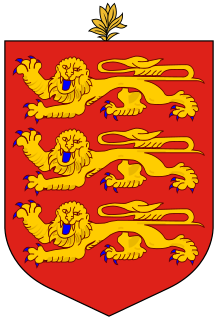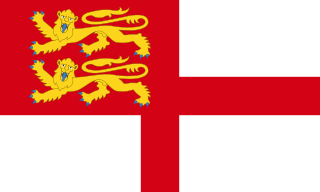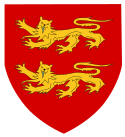
Politics of Guernsey take place in a framework of a parliamentary representative democratic British Crown dependency.

Sark is a part of the Channel Islands in the southwestern English Channel, off the coast of Normandy, France. It is a royal fief, which forms part of the Bailiwick of Guernsey, with its own set of laws based on Norman law and its own parliament. It has a population of about 500. Sark has an area of 2.10 square miles (5.44 km2). Little Sark is a peninsula joined by a natural but high and very narrow isthmus to the rest of Sark Island.

The Legislative Council of the Hong Kong Special Administrative Region (LegCo) is the unicameral legislature of Hong Kong. It sits under China's "one country, two systems" constitutional arrangement, and is the power centre of Hong Kong's hybrid representative democracy.
The Irish presidential election determines who serves as the President of Ireland, the head of state of Ireland. The last election took place on 26 October 2018. Where only one candidate is nominated, that candidate is declared elected without a ballot; this has occurred on six occasions.

The Legislative Council, or upper house, is one of the two chambers of the Parliament of South Australia. Its central purpose is to act as a house of review for legislation passed through the lower house, the House of Assembly. It sits in Parliament House in the state capital, Adelaide.
Canada holds elections for legislatures or governments in several jurisdictions: for the federal (national) government, provincial and territorial governments, and municipal governments. Elections are also held for self-governing First Nations and for many other public and private organizations including corporations and trade unions. Municipal elections can also be held for both upper-tier and lower-tier governments.

Chile holds nationwide presidential, parliamentary, regional and municipal elections.

Elections in Hong Kong take place when certain political offices in the government need to be filled. Hong Kong has a multi-party system, with numerous parties in the Legislative Council. The Chief Executive of Hong Kong is nonpartisan but has to work with several parties to form a coalition government.

Elections in Jersey take place for the States Assembly and at parish-level. Various parties have been formed over the years in Jersey, but few candidates stand for election affiliated to any political party. All elections in Jersey use the first-past-the-post voting system. In 2008, the voting age was reduced to 16 years.

Guernsey elects a legislature at the national level. The islands of Alderney and Sark also elect their own parliaments.

Since its establishment in 1947, Pakistan has had an asymmetric federal government and is a federal parliamentary democratic republic. At the national level, the people of Pakistan elect a bicameral legislature, the Parliament of Pakistan. The parliament consists of a lower house called the National Assembly, which is elected directly, and an upper house called the Senate, whose members are chosen by elected provincial legislators. The head of government, the Prime Minister, is elected by the majority members of the National Assembly and the head of state, the President, is elected by the Electoral College, which consists of both houses of Parliament together with the four provincial assemblies. In addition to the national parliament and the provincial assemblies, Pakistan also has more than five thousand elected local governments.

Legislative elections are held in Hong Kong every four years Legislative Council (LegCo) in accordance with Article 69 of the Basic Law. Legislative elections are held either at the expiry of a four-year term or when the Chief Executive dissolves the legislature and calls a new election.

The States of Guernsey, sometimes referred to as the Government of Guernsey, is the parliament and government of the British Crown dependency of Guernsey. Some laws and ordinances approved by the States of Guernsey also apply to Alderney and Sark as "Bailiwick-wide legislation" with the consent of the governments of those islands. All enactments of the States of Guernsey apply to Herm as well as Guernsey, since Herm is directly administered by the Bailiwick of Guernsey.

General elections were held in Sark on 10 December 2008, the first elections on the island.

Elections in Alderney are held for the positions both of President and Member of the States of Alderney. The President of the States of Alderney is directly elected every four years. Half of the ten States Members are elected every two years for a four-year mandate. In 2014 1,267 people were registered to vote. The whole island is a single constituency.

General elections were held in Sark on 8 December 2010, the second elections held on the island under the 2008 Constitution. The elections were for 14 of the seats that had been elected in the 2008 elections, for a four-year term.

Municipal elections in France allow the people to elect members of the City Council in each commune. These are called conseillers municipaux. They elect the mayor, who chairs the city council, as well as Deputies to the Mayor. The term of office of councilors, the mayor and his deputies is, in principle, six years.

General elections were held in Sark on 12 December 2012 to elect half of the 28 members of the Chief Pleas. Ten conseillers were re-elected, four candidates were elected for the first time, and two sitting conseillers lost their seats.
Sandra Williams is a Conseiller on Sark's Chief Pleas, the island's parliament. She was among the first elected to the reformed legislature in 2008, topped the poll in the 2012 election and was returned unopposed in 2016.

General elections were held in Sark on 16 December 2020 and will serve for 4 years, until December 2024.












